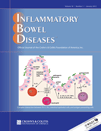Toll-like receptor 5 deficiency protects from wasting disease in a T cell transfer colitis model in T cell receptor-β-deficient mice†
Supported by a new emerging team grant on IBD from the Canadian Institutes for Health Research (IIN 84037) and a Grant-in-Aid of research from the Crohn's and Colitis Foundation of Canada. G.H. holds a Michael Smith Foundation for Health Research (MSFHR) postdoctoral fellowship, Y.Y. is supported by a CIHR Transplantation Research Award, MKL holds a Canada Research Chair in Transplantation. C.A.P. holds a Canada Research Chair in Immune Regulation. Core support for flow cytometry sorting provided by Lixin Xu was funded by the Immunity and Infection Research Centre MSFHR Research Unit.
Abstract
Background:
Toll-like receptor 5 (TLR5) is implicated in the innate and adaptive immune responses that are associated with inflammatory bowel disease (IBD). In humans TLR5 is expressed on CD4+ T cells and costimulation with flagellin potentiates effector and regulatory T cell responses. The aim of this study was to determine the role of TLR5 in CD4+ T cell subsets versus other cells in induction of disease in a model of T cell-dependent colitis.
Methods:
TLR5 expression on CD4+ T cells was assessed by real-time reverse-transcriptase polymerase chain reaction (RT-PCR). Wildtype (WT) or TLR5-deficient (5−/−) CD4+ T conventional cells (Tconv) and T regulatory cells (Treg) were compared for their ability to induce and suppress T cell transfer colitis, respectively. In addition, the role of TLR5 expression in recipient mice was analyzed.
Results:
TLR5 is preferentially expressed on mouse Treg compared to Tconv, although expression levels were low. The colitogenic capacity of WT and 5−/− Tconv was found to be similar and Treg from WT or 5−/− donor animals both prevented T cell transfer colitis in TLR-competent hosts. TLR5 deficiency in recipient mice, however, did affect the disease process, as T cell receptor-β (TCRβ) 5−/− recipients had decreased weight loss compared to TCRβ recipient mice when WT Tconv were used.
Conclusions:
TLR5 expression on T cells is not required for induction of or protection from T cell-dependent colitis. Expression of TLR5 in non-T cells has a pathogenic role, since TLR5 deficiency in recipient mice protects against weight loss induced by WT T cells. (Inflamm Bowel Dis 2011;)




